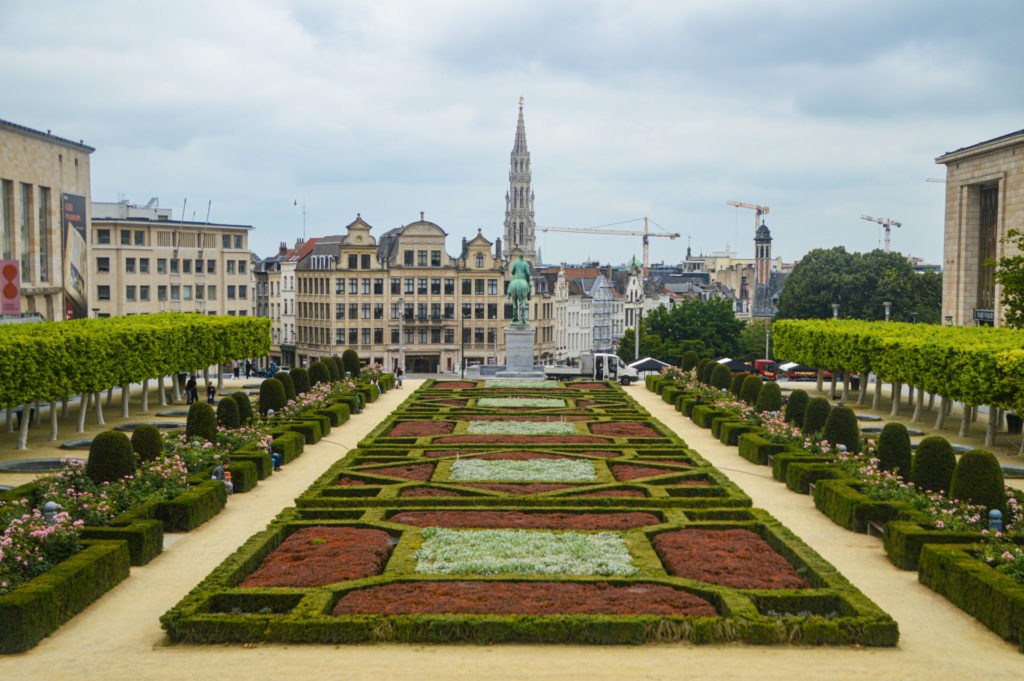Imagine hating your country so much you wish it was wiped off the map.
In most states this would be an act of political suicide. But not in Belgium, where this stance has made the extreme-right Vlaams Belang party the most popular in Flanders and the largest in the country ahead of regional and national elections on June 9.
In an interview with Brussels Times last month, the party’s leader Tom Van Grieken said Flanders should become an independent republic, with Brussels as its capital. “Belgium is a failed state,” he declared, without providing any evidence to back up his claim.
Van Grieken is not the first person to trash-talk Belgium. ‘Belgium is a failed state,’ screamed a 2015 op-ed in POLITICO, claiming the Paris terrorist attacks - which were planned in Brussels - were proof of the “failings of a divided, dysfunctional country.” More recently, and slightly more charitably, the Economist described Belgium as the “world’s most succesful failed state.”
When you think of failed states you probably think of countries like Somalia, Yemen and Afghanistan – poor, weak and unfree states ravaged by years of war and corruption. Belgium is clearly not one of those countries. But how do you prove the EU’s sixth richest country is not a failed state to those that are convinced it is?
Facts may be out of fashion in some quarters, but scan the stats and you’ll find that Belgium is one of the freest, richest, most educated and developed states in the world.
- It is ranked 160th out of 179 countries in the Fragile State Index (formerly the Failed States Index). To avoid any confusion, the lower down the index you are, the less of a failed state you are.
- Belgium is 12th out of over 200 countries on the United Nations’ Human Development Index - which reflects a country’s per capita income, education, and life expectancy. This places it above the United States, Canada, Japan, France and even Luxembourg, the EU’s richest country per capita.
- As anyone who has spent time in Belgian hospitals can confirm, its health system is one of the best in the world, ranking fifth in Europe in overall healthcare and ninth in the world in terms of medical innovation.
- Belgium has one of the highest tertiary education rates of any OECD country and was recently judged the seventh smartest European state out of 44, above France, Germany and Britain.
- It scores 96/100 on Freedom House’s global freedom index – higher than Britain, France and Germany and streaks ahead of the United States.
- Belgium is 16th out of 180 countries in Transparency International’s Corruption Perception’s Index.
- Perhaps most importantly, Belgians don’t believe they live in a failed state. A higher percentage of Americans, Germans and Dutch think their society is broken than Belgians. And the country features near the bottom of league tables measuring whether a country’s political and economic system is bust or not. To be fair, 55% of Belgians feel their country is in decline, but this is less than the global average and the same as the United States.
Belgium is far from being a perfect state. Personal taxes are the highest in the world, while the lasagne layers of government make public services inefficent. Lax enforcement of laws and a swamped justice system make it a haven for border-hopping criminals. And, like many European countries, it is incapable of defending itself against outside attacks due to decades of under-investment in the military. But this doesn’t make Belgium a dysfunctional state, let alone a failed one.
On the contrary, it could be a source of inspiration for certain countries paralysed by nostalgia, obsessed with world domination, gridlocked by political polarisation or torn apart by futile culture wars.
One of the ironies about Belgium being described as a failed state is there is less for the state to fail at than almost any other European country because so much power has been devolved to the three regions – Flanders, Wallonia and Brussels.
In a 1999 essay entitled ‘The Stateless State: why Belgium Matters,’ the historian Tony Judt wrote: “We all know, at the end of the twentieth century, that you can have too much state. But Belgium may be a useful reminder that you can also have too little.”
So maybe the real problem is not that the Belgian state has has too much power, but that it has too little to sort out the country’s problems. And far from being a failed state, maybe the real issue for those who would rather see Belgium destroyed is that it’s too successful.

